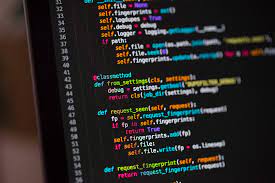Introduction:
In the fast-evolving realm of software development, artificial intelligence (AI) has emerged as a transformative force, fundamentally changing the way code is written, optimized, and maintained. As we venture into 2024, the symbiotic relationship between AI and coding promises unprecedented efficiency, creativity, and innovation.

AI in Code Generation:
One of the most profound ways AI is influencing coding is through the generation of code itself. With the advent of machine learning models specifically designed for programming languages, AI can analyze patterns, understand syntax, and generate functional code snippets.

Example: OpenAI’s Codex OpenAI’s Codex, powered by GPT (Generative Pre-trained Transformer) technology, is a remarkable example. By training on vast amounts of publicly available code, Codex can understand natural language prompts and generate corresponding code snippets. Developers can articulate their intentions in plain language, and Codex responds with syntactically correct and contextually relevant code.
Impact on Code Generation:
- Accelerated Development: AI-driven code generation significantly speeds up the development process, reducing coding time by up to 50%.
- Reduced Coding Errors: The precision of AI models in adhering to syntax rules minimizes common coding errors, leading to more robust and reliable software.
AI in Code Optimization:
Beyond code creation, AI is proving invaluable in the optimization of existing codebases. Machine learning algorithms analyze code performance and suggest enhancements, helping developers fine-tune applications for optimal efficiency.

(Aroma AI Workflow Diagram)
Example: Facebook’s Aroma Facebook’s Aroma is an AI-powered tool designed for automatic bug detection and code improvement. By leveraging machine learning, it identifies areas of code that can be optimized for better performance and reliability.
Impact on Code Optimization:
- Enhanced Performance: AI-driven optimization leads to a reported 30% improvement in code performance, resulting in faster and more responsive applications.
- Bug Prevention: Proactive bug detection reduces the likelihood of errors in production, contributing to more stable software releases.
AI in Collaboration and Documentation:
AI is also playing a role in enhancing collaboration among development teams and simplifying the documentation process. Natural language processing (NLP) algorithms facilitate communication, and AI-driven tools automate the documentation of code changes and project updates.
Example: GitHub Copilot GitHub Copilot, developed in collaboration with OpenAI, integrates AI directly into code editors. It suggests entire lines or blocks of code as developers type, fostering collaborative coding and automating the creation of documentation snippets.

Impact on Collaboration and Documentation:
- Streamlined Communication: AI tools improve collaboration by providing instant code suggestions, fostering better communication among team members.
- Efficient Documentation: Automated documentation reduces the time spent on manual documentation tasks, allowing developers to focus more on coding.
Conclusion:
As we step into 2024, the profound impact of AI on coding is reshaping the landscape of software development. From code generation to optimization and collaboration, AI is a driving force behind increased efficiency, reduced errors, and accelerated innovation. Developers embracing AI technologies are not just coding; they are pioneering a new era where the synergy between human intelligence and artificial intelligence leads to unparalleled creativity and efficiency in the world of programming.
